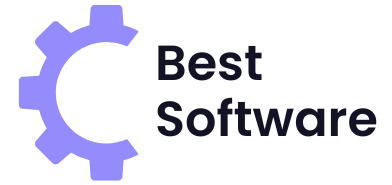In the world of online marketing, choosing the right Customer Relationship Management (CRM) software is crucial for success. Top-rated CRM solutions not only streamline communication with customers but also enhance marketing strategies, making it easier to track campaign performance and lead engagement. Marketers need tools that facilitate automation, data analysis, and personalized interaction, all of which are essential in today’s competitive landscape.
The sheer number of CRM options available can be overwhelming. Evaluating which platform aligns best with specific marketing goals requires considering key features and industry needs. With the right CRM, businesses can harness the full potential of their marketing efforts, leading to increased customer satisfaction and retention.
As this article explores the top-rated CRM software for online marketing, readers will discover tools that cater to their unique needs and help drive business growth. From integrations and emerging trends to best practices, the insights provided will aid marketers in making informed decisions that can elevate their strategies.
Key Takeaways
- Effective CRM solutions streamline customer interactions while enhancing marketing efforts.
- Understanding key features can significantly improve campaign performance and ROI.
- Choosing the right CRM is essential for achieving long-term business success.
Understanding CRM Software in Online Marketing

CRM software plays a crucial role in online marketing by helping businesses manage customer interactions effectively. It centralizes customer data, enabling marketers to create personalized experiences that resonate with target audiences.
Key functions of CRM in online marketing include:
Customer Segmentation: Businesses can categorize customers based on behavior, preferences, and demographics, enhancing targeting efforts.
Automated Messaging: CRM systems enable automated emails and messages, ensuring timely communication with prospects.
Lead Management: Tracking leads throughout the sales funnel helps marketers identify opportunities and optimize their strategies.
Analytics and Reporting: By analyzing customer interactions, businesses gain insights into marketing performance, refining their approaches.
Benefits of using CRM software in online marketing are evident. They empower teams to prioritize customer needs and foster long-term relationships.
For effective use of CRM in online marketing, companies often look for features such as:
| Feature | Importance |
|---|---|
| Integration with tools | Seamless connection with other marketing systems |
| User-friendly interface | Easy navigation for all team members |
| Customization options | Tailored settings to fit specific business needs |
In summary, CRM software serves as a vital tool for enhancing online marketing efforts. It allows organizations to streamline processes, nurture leads, and cultivate customer loyalty.
Key Features of Top-Rated CRM Software

Top-rated CRM software for online marketing incorporates essential features that enhance customer relationship management. These functionalities support effective communication, streamline sales processes, and provide valuable insights into customer behavior.
Contact Management
Contact management is a fundamental feature of CRM software. It allows users to store and organize customer information, including names, email addresses, phone numbers, and interaction history. Effective contact management ensures that no lead is overlooked.
Additionally, advanced CRM platforms offer tagging and segmentation options. This enables users to group contacts based on specific criteria, such as demographics or purchase behavior. A well-managed contact database fosters targeted marketing efforts, leading to higher engagement rates.
Email Marketing Integration
Email marketing integration is crucial for CRM systems. It allows marketers to create, send, and track email campaigns directly from the CRM platform. This feature simplifies the process of connecting with leads and nurturing customer relationships.
CRM solutions often include templates to streamline campaign creation. They also offer analytics that monitors open rates, click-through rates, and conversions. These insights help marketers refine their strategies and improve future campaigns.
Sales Automation
Sales automation features play a significant role in improving sales efficiency. This functionality automates routine tasks such as lead scoring, follow-ups, and task assignments. By minimizing manual work, sales teams can focus on closing deals.
Additionally, automation helps track sales performance and pipeline stages. Users can set reminders for follow-ups and manage customer interactions more efficiently. This leads to enhanced productivity and shorter sales cycles.
Analytics and Reporting
Analytics and reporting capabilities are vital for understanding customer behavior. Top-rated CRM software provides dashboards and reports that visualize data trends and performance metrics. Marketers can analyze key performance indicators (KPIs) such as customer acquisition costs and sales conversions.
With customizable reports, users can focus on metrics that matter most to their business objectives. These insights inform strategic decision-making, allowing companies to optimize their marketing efforts based on data-driven results.
Customization and Scalability
Customization and scalability are critical features that enable CRM software to adapt as business needs change. Users can tailor the interface, workflows, and user permissions according to their requirements. This flexibility enhances user adoption and overall satisfaction.
As businesses grow, CRM solutions should scale accordingly. The best platforms provide multiple pricing tiers and additional features to accommodate larger teams or increased data needs. This ensures that CRM tools remain relevant throughout a company’s growth journey.
Evaluating CRM Solutions for Marketing Success

When selecting a CRM for marketing success, key factors such as usability, integration capabilities, security, and customer support are vital. Each aspect plays a significant role in ensuring the CRM meets the specific needs of a marketing team.
Assessing User Interface and Experience
The user interface (UI) directly impacts how effectively team members can utilize the CRM. A clean, intuitive design enhances user experience (UX), leading to higher adoption rates. Look for CRMs with customizable dashboards that display key performance indicators (KPIs) at a glance.
Key features to consider include:
- Ease of navigation: Users should find it simple to locate necessary tools.
- Mobile compatibility: A responsive design allows access on various devices, crucial for teams on the go.
- Customization options: Tailoring the interface to specific workflows can improve efficiency.
Positive user experiences ultimately drive productivity and satisfaction.
Integration with Other Tools
A CRM that seamlessly integrates with existing marketing tools enhances functionality and data flow. Effective integration reduces data silos, ensuring that teams have a unified view of customer interactions.
Critical integrations to consider include:
- Email marketing platforms: Enabling direct campaign management within the CRM saves time.
- Social media management tools: Connecting these platforms allows for streamlined outreach and engagement tracking.
- Analytics solutions: Integrating analytics tools helps in deriving actionable insights from customer data.
Ensuring compatibility with tools already in use can significantly enhance marketing efforts.
Security and Compliance
With increasing concerns over data privacy, select a CRM that prioritizes security and compliance. This is essential for protecting sensitive customer information and adhering to regulations such as GDPR or CCPA.
Important security features include:
- Data encryption: Protects data both during transmission and at rest.
- User access controls: Allows administrators to set permissions, ensuring only authorized personnel can access sensitive information.
- Regular security audits: Guarantees that the CRM consistently meets evolving security standards.
A strong security posture builds trust with customers and partners alike.
Customer Support and Training Offerings
Robust customer support is critical for maximizing CRM potential. Vendors should offer multiple support channels, such as live chat, email, and phone assistance.
Consider these training options:
- Onboarding sessions: Personalized training ensures teams quickly adapt to using the software effectively.
- Webinars and tutorials: Ongoing education resources help users stay informed about feature updates and best practices.
- User communities: Access to forums fosters knowledge sharing and problem-solving among users.
Effective support and training can greatly enhance user proficiency and engagement with the CRM.
Industry-Specific CRM Platforms

Industry-specific CRM platforms cater to the unique needs of various sectors by offering tailored features and functionalities. Businesses in e-commerce, service-based sectors, and B2B marketing require specific tools to optimize their customer relationship management processes.
For E-Commerce Businesses
E-commerce businesses benefit significantly from CRM systems designed to enhance customer interactions and streamline sales processes. Features such as automated email marketing, customer segmentation, and integrated payment processing are crucial.
A well-suited CRM will allow tracking of customer behavior on the website. This function aids in personalizing marketing strategies. Popular choices include:
- HubSpot: Known for its robust marketing tools.
- Zoho CRM: Affordable and rich in features tailored for online retailers.
These platforms assist in building customer loyalty by automating post-purchase follow-ups and managing reviews.
For Service-Based Enterprises
Service-based enterprises require CRMs that prioritize service delivery and client relationship management. Key features include project management tools, scheduling, and invoicing capabilities.
CRMs for service industries often provide:
- Client portals: Allowing for transparency in service requests.
- Communication tracking: Ensuring all client interactions are logged.
Examples include:
- Salesforce: Offers custom workflows for service personalization.
- Fiverr Workspace: Focuses on freelancers and agencies needing simple management solutions.
These tools enhance operational efficiency and client satisfaction.
For B2B Marketing
B2B marketing involves complex sales processes and decision-making units, making tailored CRM essential. A CRM designed for this sector should include features for managing long sales cycles, multi-contact interactions, and detailed reporting.
Key functionalities often sought are:
- Lead scoring: Prioritizes prospects based on engagement.
- Account-based marketing tools: Targeting specific companies with tailored campaigns.
Leading options include:
- Pipedrive: User-friendly interface for sales pipeline management.
- Microsoft Dynamics 365: Comprehensive analytics and integration options.
These platforms facilitate stronger relationships and improved sales forecasting.
CRM Integrations and Ecosystem

CRM systems play a crucial role in the online marketing landscape by integrating various tools and platforms. These integrations enhance functionality and improve workflow efficiency. The following subsections explore key integrations within CRM ecosystems, focusing on marketing automation tools, customer service platforms, and content management systems.
Marketing Automation Tools
Integrating marketing automation tools with CRM software streamlines marketing efforts and improves lead management. Such tools enable businesses to automate tasks like email marketing, social media scheduling, and lead scoring.
Popular marketing automation platforms include:
- HubSpot: Offers seamless integration with many CRMs, enabling businesses to manage campaigns, track leads, and analyze performance metrics within one platform.
- Marketo: Known for robust features that support targeted marketing campaigns and lead nurturing.
This integration allows marketing teams to manage customer interactions effectively, providing personalized experiences based on user behavior and preferences. The result is better engagement and higher conversion rates.
Customer Service Platforms
Customer service platforms are essential for maintaining client relationships and addressing issues promptly. Integrating CRM with customer service solutions enables businesses to provide a cohesive experience from initial contact through ongoing support.
Key platforms include:
- Zendesk: Integrates with CRMs to offer a comprehensive view of customer histories, making it easier to resolve issues quickly.
- Freshdesk: This platform enhances communication channels and provides support teams with valuable customer insights.
By connecting these systems, companies can manage tickets, track customer satisfaction, and analyze performance, ultimately leading to improved service quality and customer loyalty.
Content Management Systems
Integrating CRMs with content management systems (CMS) enhances content marketing strategies. This integration allows businesses to manage, distribute, and analyze content effectively.
Significant CMS platforms include:
- WordPress: When integrated with CRMs, it allows for personalized content delivery based on user data and behaviors.
- Drupal: Provides advanced capabilities for managing complex content and integrating CRM data for targeted marketing efforts.
This integration enables marketers to segment audiences accurately, delivering tailored content that matches user preferences, thereby driving engagement and conversion.
Best Practices for CRM in Online Marketing
Implementing effective CRM practices is crucial for success in online marketing. By following these best practices, businesses can enhance their customer relationships and marketing efforts.
1. Define Clear Goals
Establish specific, measurable goals for the CRM. This helps in aligning marketing strategies with customer needs and expectations.
2. Choose the Right Software
Selecting a suitable CRM platform is vital. It should offer features like automation, analytics, and integration with other marketing tools.
3. Ensure Proper Training
A strong training program for all team members is essential. This ensures everyone understands how to use the CRM effectively and utilizes its features to their fullest potential.
4. Segment Your Audience
Utilize CRM to categorize and segment customers based on their behavior and preferences. This allows for targeted marketing campaigns that resonate with each segment.
5. Monitor Customer Interactions
Track and analyze customer interactions through the CRM. This data can provide insights into customer needs and improve future marketing efforts.
6. Utilize Automation
Leverage automation features within the CRM. This can streamline follow-ups, nurture leads, and make marketing campaigns more efficient.
7. Gather and Analyze Feedback
Regularly collect feedback from customers. This helps in refining marketing strategies and improving overall customer satisfaction.
By adhering to these practices, businesses can maximize the effectiveness of their CRM systems in online marketing.
Emerging Trends in CRM Software
The landscape of CRM software is evolving rapidly. Businesses are adopting new technologies that enhance functionality and improve user experiences.
Key Trends to Watch
Artificial Intelligence (AI): AI is increasingly integrated into CRM systems for predictive analytics and smarter data processing. This helps in understanding customer behavior and personalizing interactions.
Omnichannel Engagement: Companies are utilizing omnichannel strategies to engage customers across multiple platforms. This approach ensures a seamless experience whether interacting via email, social media, or in-person.
Data Unification: Customer Data Platforms (CDPs) are gaining traction. These systems consolidate data from various sources, providing a comprehensive view of customer interactions.
Blockchain Technology: Security and transparency are paramount. Blockchain is being integrated into CRM solutions to secure data transactions and enhance trust.
Voice-to-CRM Solutions: As voice technology advances, CRM systems are incorporating voice commands for ease of use. This trend improves efficiency and accessibility for users.
Conclusion
Adopting these emerging trends can significantly enhance CRM capabilities, allowing businesses to better serve their customers while staying ahead of the competition.
Choosing the Right CRM for Your Business
Selecting the appropriate CRM software is crucial for optimizing online marketing efforts. Key factors to consider include the size of the business, budget constraints, and anticipated return on investment.
Size and Scale Considerations
The size and scale of the business directly influence CRM selection. Small businesses may benefit from simpler, cost-effective solutions that focus on basic features. These could include tools for managing contacts, follow-ups, and basic reporting.
Conversely, larger enterprises often require robust, customizable platforms. Features such as advanced analytics, integration capabilities, and scalability are critical. It’s essential to assess the number of users, potential growth, and specific needs. For instance, Salesforce is widely recognized for its adaptability to both small and large operations.
Budgeting for CRM Investment
Budgeting is a pivotal aspect of choosing the right CRM. A clear financial plan should encompass not only the software costs but also implementation, training, and ongoing maintenance. Businesses must weigh the cost-effectiveness of various CRM options against their features.
Monthly subscription rates can vary widely. For example:
| CRM Software | Monthly Cost |
|---|---|
| Salesforce | $25+ |
| HubSpot Sales Hub | $45 |
| ActiveCampaign | $15 |
| ClickUp | $7 |
It’s advisable to consider potential hidden costs, such as integration with existing tools and customer support fees.
ROI and Performance Analysis
Analyzing the expected return on investment (ROI) is essential when choosing a CRM. Businesses should look for software that enhances marketing efficiency, increases sales, and improves customer retention rates.
Setting specific performance metrics, such as lead conversion rates, can provide measurable insights. Regular assessments of CRM effectiveness will help identify areas needing adjustment. Utilizing software analytics will help in tracking progress towards these goals.
Ultimately, a CRM that aligns with the business’s objectives and offers solid performance metrics will significantly enhance marketing initiatives.



